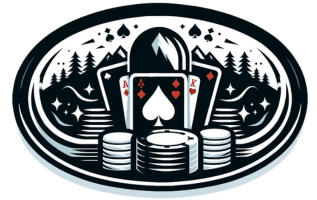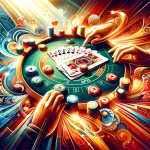Poker is often seen as a game of chance and strategy, but there’s a crucial element that frequently goes overlooked: the psychological aspect. The mindset of a poker player can be the deciding factor between a triumphant victory or a crushing defeat. “The Mental Game of Poker” by Jared Tendler and Barry Carter serves as an essential guide for players looking to gain a mental edge at the felt. Through a deep dive into the book’s insights, we’ll explore how mastering one’s mindset is not just advantageous but imperative for success in the world of poker.
Unveiling the Power of Mindset in Poker
The significance of mindset in poker cannot be overstated. A player’s mental state drives their decision-making processes, risk assessments, and ability to handle the inherent variance of the game. At the highest levels, where technical skills are often matched, it is the mental fortitude that sets champions apart. Every seasoned player will attest that mindset is what helps to maintain focus during long sessions, manage tilt, and bounce back from bad beats.
Understanding and controlling emotions is pivotal. Poker is a game riddled with emotional highs and lows, and players who can maintain emotional equilibrium are more likely to make logical, profitable decisions. A player who succumbs to tilt—a state of emotional frustration and confusion—can see their bankroll dwindle. Mastering mindset involves recognizing emotional triggers and developing strategies to stay composed under pressure.
Moreover, confidence plays a vital role in the realm of poker. Self-assurance influences the willingness to make bold moves and trust one’s intuition. However, overconfidence can be detrimental, leading to reckless play and disregard of sound strategy. Balancing confidence with humility and continuous learning is essential for long-term success in poker, where the landscape is ever-evolving and no player is infallible.
Analyzing “The Mental Game of Poker”
“The Mental Game of Poker” is not your typical strategy book filled with charts and hand analysis; instead, it delves into the psychological components that impact a player’s performance. Jared Tendler, a mental game coach, collaborates with poker player and writer Barry Carter to unpack the complex interplay of psychological factors at the poker table. The book provides actionable advice on dealing with tilt, fear, motivation, and confidence issues that plague many players.
Tendler introduces the concept of “inchworm theory” to describe how players improve over time. This theory explains that as a player masters certain skills, their weakest areas become more pronounced, indicating where they should focus next. This approach underscores the importance of mental game work as a continuous process of self-improvement rather than a quick fix. The book also emphasizes the power of incremental change and the value of small, consistent adjustments over seeking dramatic breakthroughs.
One of the book’s strengths is its practical application. Each chapter is laden with exercises, checklists, and reflective questions that encourage readers to actively engage with and apply the concepts discussed. The emphasis on personalization is evident, as Tendler recognizes that each player’s mental game challenges are unique. The tailored strategies and in-depth exploration of mental game issues provide a robust framework that players at any level can use to revamp their psychological approach to poker.
In conclusion, “The Mental Game of Poker” by Jared Tendler and Barry Carter is more than just an instructional manual—it’s a transformative tool for players aiming to excel in the mental arena of poker. The book’s insights into the psychological facets of the game underscore the immense power of mindset and offer a practical roadmap for players seeking to conquer their mental demons. Whether you’re a seasoned pro or an amateur looking to improve, mastering the mental game of poker is an undeniable key to unlocking your full potential at the tables.



















































